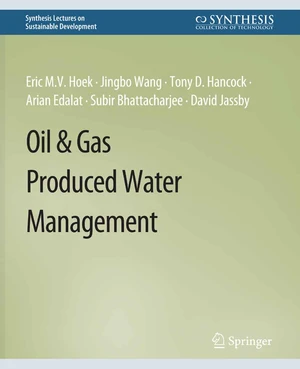Produced water contributes to the largest volume waste stream associated with oil and gas (O&G) exploration and production (E&P) operations. It is usually a complex mixture of inorganics and organics that is formed underground and brought to the surface during O&G production. Traditionally, produced water has been considered as a waste to the O&G industry. The conventional management strategies include disposal (typically by injection into depleted wells or permitted disposal wells), recycle (direct reuse within the E&P operation), and reuse (treatment and reuse offsite for food crop irrigation, livestock watering or industrial use). The O&G industry is going through a paradigm shift, where scarcity of water, economics of water management, declining oil costs, and increasing focus on environmental and ecological stewardship are shifting the focus toward integrated water management in E&P operations. Water is no longer a problem to be delegated to a third-party disposal or treatment vendor, but is becoming a cornerstone of O&G production. In this review, we summarize produced water characteristics, regulations and management options, produced water treatment fundamentals, and a detailed discussion of process equipment and advantages/disadvantages of currently available treatment processes. These results in peer-reviewed publications could provide a guide for the selection of appropriate technologies based on the desired application. Major research efforts in the future could focus on the optimization of current technologies and use of combined treatment processes of produced water in order to comply with reuse and discharge limits, under more stringent environmental regulations.
Price history
Jan 19, 2023
€30.04

